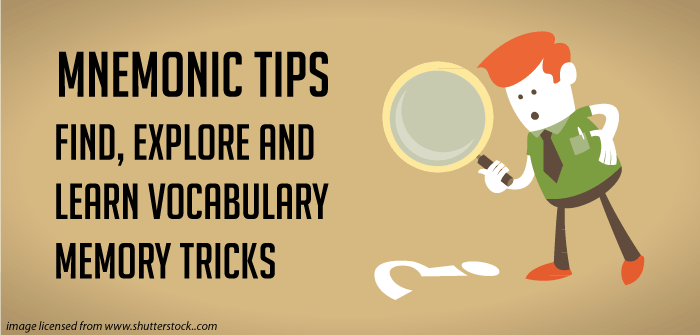Motivational Guide on How to Master any New Language within 6 Months - by chrisadventures
Cómo estás? Apa kabar kamu? 你好吗? Как вы, how are you? Looking to pick up a second (or third) language but finding it too difficult, too complicated? Human beings make things unnecessarily complicated. Instead of drawing a direct line from point A to point B, we create one hundred reasons why it's too hard, too tough, we construct distractions. There is no hard, there is no easy, it's all dependent on how we approach our goals and obstacles. But wouldn't it be awesome to speak that new language on your business trips or during family visits? Did you know scientists state that any language can be mastered within several months?
Why learn a new language?
- A different language is a different vision of life, it's like becoming another person and living a new life for every new language you speak.
- Learning a foreign language can increase your brain size. This is wat Swedish scientists discovered when they used brain scans to monitor what happens when someone learns a second language.
"One language sets you in a corridor for life. Two languages open every door along the way." (Frank Smith)
So, the question of today: How can we efficiently learn a new language?
A good friend of mine recently came back from Spain after 6 months. He told me that he regretted that he still couldn't speak a proper word of Spanish. A 6 month visit to Spain certainly doesn't guarantee you to speak Spanish in the end. I mean, living in another country helps, but it's not a silver bullet that will answer all of your problems on its own. As long as you're not using the right techniques and dedication, learning a new language will still be like bending steel with your own hands!
At first...
The time it will take for you to learn a new language is dependent on:
1. Dedication: how much hours per week you devote to learn your new language
2. Motivation: your motivation affects your time effectiveness
3. Relatedness: how close the new language is to languages you already know
4. Techniques: the learning techniques you use
5. Complexity: the complexity of the language itself
Differences in Language Complexity

Techniques
To start off, I want you to know that it's important to embrace your new language. Involve it into your life and assume it to be something valuable, something you really want to achieve. You also need to be patient with yourself. It might not seem to work out at first, but in the end you definitely won't regret the effort!
1. The Most Common Words
To start having proper conversations, it's important that you pick your words carefully. People should start studying the most commonly used words. For example in French, the 600 most common words apparently account for 90% of words found in common texts. By knowing 1.75% of the English dictionary, you're able to understand 95% of what you read.
Start by learning the most common 300-500 words. This will rapidly enable you to have proper conversations. For example click here to see a list that contains the most commonly spoken words in Spanish. If you want to learn Spanish, this would be a good list to start with.
"Content and vocabulary selection beyond the most common 300-500 words should be dictated by subject matter interest. You should ask yourself what you will spend your time doing with this language." (Tim Ferris, 2009)
2. Your "Words-To-Learn-List"
Have you ever written down a to-do list before? You probably did! This is more or less the same. If you write down a daily "Word-To-Learn-List" of 5-10 words, you'll consciously learn new words day by day. Let's say you focus on 10 words per day, shouldn't be too difficult right? Imagine doing this every day during a time frame of one year. 365 days x 10 words = 3650 words!
3. Use Mnemonics
An effective learning method to learn new words is to use mnemonics. It can often be very difficult to remember certain new words! The best way to remember these words is by using mnemonics. These will help you remember words at first. This allows you to use the words in conversations and if you do so, you will remember the words more easily and after a while they will simply stick in your head.
4. Daily activities
You should involve your new language in your daily activities. This won't only help you to learn new words, but it also helps you to remember the words more easily. You can change your language settings on your mobile phone, Facebook, e-mail, etc. The more you introduce a new language into your daily life, the more you and your brain will start considering it something worthy to care about.
5. Combine Fun and Learning
It's important to combine fun and learning or it will be very very difficult for you to keep learning the new language. I mean, it shouldn't be boring, make it fun and unconsciously you'll learn new words day by day! For example:
1. Play video games with the language settings on your new language
2. Use applications on your telephone to learn a new language, for example DuoLingo,
3. Watch Tv Shows with subtitles in your new language
4. Listen to music in your new language
I used to watch Game of Thrones with Spanish subtitles.
6. Write in a Diary
Use your new language by writing stories or in a diary! Use your new words, write to yourself about your day, write about what you've done and this way, you'll learn to effectively apply your words. You can efficiently use things like Google Translator and dictionaries. This is also a good method to remember words in the long-term since you constantly make use of them.
7. Integrate
Another thing many scientists mention is to integrate with the new culture and language. The best way is to live, communicate and experience it. This is quite a dedication and sacrifice which might be difficult to make. Scott Young and Vat Jaiswal did integrate into the culture and language and managed to learn four languages (Spanish, Portugese, Chinese and Korean) within a time frame of 1 year!
So..
You can be living abroad for years regretting that you've never started to learn. But believe me, once you do focus and you do succeed.... human interactions, communication, it is so satisfying! Embrace what makes you different, it is really wonderful to speak another language. There is a goal and there is a price to be paid. Like in every case of success and achievement, stay focused and stay motivated. Pay the effort today and profit for the rest of your life!
#language #life #travel #motivation #steemit





Very informative post. Thanks @chrisadventures
I have always wanted to learn dutch :( i can barely speak English and i am from England :( haha joking, I wonder if it is true when people say English is the hardest language too learn if not your first language? All my foreign speaking friends say so.
Well, I'm from the Netherlands, so I speak dutch! But I think it's not true. I'm pretty sure that any language with a different alphabet, think about Chinese, Korean, Hebrew and Arabic are way more difficult. It's also difficult to pronounce and even harder to learn the meaning of all symbols before even starting to speak it, don't you think?:)
Foarte bun postul, bravo! [ hint ]
Ce fac? That's romanian:) I've learned a bit two years ago!
Good post! Convincing people to learn more languages is one of the most important things for us to do nowadays.
Yep definitely worth it, right? Especially nowadays that so many people are travelling around the world!
May be you like my article about teachin kanji hyeroglyphs - https://steemit.com/languages/@ratel/the-easy-way-to-study-kanji-hieroglyphs
Whilst I think this is a good article, I want to point out that you cannot master a language in 6 months unless you are a savant (lookup Daniel Tammet to see what I mean).
Becoming proficient enough to get by in the language is certainly possible, but it takes a lot of work. Most people, especially if it's their first second language, don't have the courage to step outside their comfort zone and allow themselves to be embarrassed by mistakes.
But mastering takes years of living with the language and the culture that built it. I've been living in The Netherlands for 8 years and whilst I'm fluent, I'm certainly not a master at it, in spite of speaking it 90% of the time.
Hmm you're definitely right! The term "master" is quite relative though! Although I definitely believe that you can become close to "master" by integration into the culture and by daily applying the language and words you're learning. As you see the video with the "no-english rule", you'll definitely become a master within a short while, also dependent on which language you choose of course:) good reply anyways!!
thank you, this is great!
This post is really well-constructed. I liked how you included infographics with solid steps on how to achieve specific goals. This is very helpful, and one I'll try to apply while mastering Spanish. Thanks for sharing this!
Amazing to hear @jedau, I'm learning Spanish right now because within a week I'll be travelling to Valencia and I'll be staying there for 4 months!! I'm excited to learn Spanish there
Well that's a sure fire way to learn a language--immerse with the locals. Have fun there!
I really like the 300-500 word method. Before I threw in the towel on learning Spanish (mostly because I lost interest), I was using flash cards with the base words from this site: https://fluent-forever.com/the-method/vocabulary/base-vocabulary-list/#.VBChxS5dVhT
Of course, learning proper tenses and immersing myself in the language more through music, tv, and travel would have helped increase speed, but that is the best first step
After learning two other non-native languages, I really connected with some of the content in the blog. I really hope you consider doing a follow up piece on full immersion learning. I did that with Spanish and it had profound effect on me. I'm already following you, so I upvoted this and will feature this post on my hidden gems blog post. Great content.